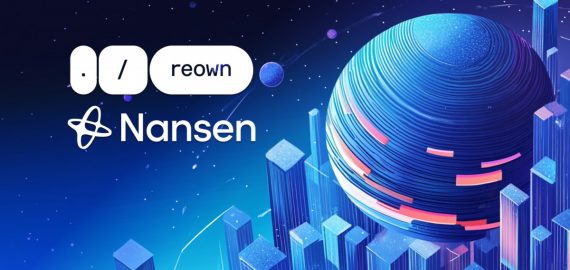Allora Welcomes Beacon Protocol as a Primary Data Partner for Training AI Models.
In Brief
By partnering with Beacon Protocol, Allora is set to enhance the efficiency of training AI models through secure and privacy-focused data streams.

An evolving decentralized AI network, Allora collaborated with the Beacon Protocol which aids in the organization of data on-chain for artificial intelligence. Through this collaboration, Beacon Protocol will play a crucial role as a data provider by connecting to Allora’s Data Hub, making it easier for AI models to undergo training while prioritizing privacy in data streams.
Beacon Protocol enables on-chain privacy controls for sensitive data, allowing AI access while maintaining privacy and data integrity. This framework is tailored to cultivate sustainable data ecosystems for AI applications, unlocking fresh data sources and establishing secure multi-sourced data streams utilizing advanced privacy technologies like Fully Homomorphic Encryption (FHE) and Zero-Knowledge proofs (ZK). This initiative aims to ensure the responsible and fair utilization of private data for AI purposes.
Allora is crafted to support a variety of models within an ecosystem that promotes both competitive and collaborative dynamics. Its incentive mechanisms, combined with a contextual awareness, help optimize its outputs for better results.
In the Network, Workers play an essential role. Inference Workers manage machine learning (ML) models designed to align with specific targets within the network. They produce insights based on relevant data for particular topics, such as forecasting future ETH prices or crafting systems to prevent cheating in blockchain gaming. Meanwhile, Forecast Workers enhance the quality of these insights by verifying the accuracy of predictions made by other Workers in the network.
Beacon Protocol to Supply Data for the Advancement of AI Technologies
In this collaboration, Beacon Protocol will act as a vital data source, enabling the use of Private Data to train the inferences of Workers operating on the Allora Network. The Data Hub will source privacy-protected information from decentralized applications (dApps) and decentralized physical infrastructure networks (DePINs), previously unavailable for AI training. The framework established by Beacon Protocol will empower AI models on the platform to engage with multi-source datasets while ensuring confidentiality and safety, rewarding data providers in the process. In contrast to traditional training datasets, Private Data yields insights that bolster Allora’s network and enhance its AI functionalities. The data supplied by Beacon Protocol is both encrypted and context-sensitive, providing Allora’s Worker nodes with the essential details required to generate more precise and trustworthy inferences. Furthermore, data lineage is utilized to motivate users, DePINs, and networks contributing data. Please be reminded that the content provided here is not to be seen as legal, financial, investment, or any other form of advice. It’s crucial to only invest what you can afford to lose and consult independent financial guidance if uncertainty arises. For more details, we recommend checking out the terms and conditions as well as the help and support sections provided by the issuer or advertiser. MetaversePost strives for accurate and impartial reporting, but market situations can change unexpectedly.
Alisa, a passionate journalist at Cryptocurrencylistings, focuses on cryptocurrency, zero-knowledge proofs, investments, and the vast domain of Web3. With a sharp eye on emerging trends and technologies, she offers in-depth insights to inform and engage readers in the fast-changing world of digital finance. Allora Enso, LayerZero, and Stargate Join Forces to Enable One of the Largest Liquidity Migrations on Ethereum to Unichain dApps JetBrains Releases Mellum AI Model for Cloud-Based Code Completion, Now Accessible on Hugging Face
Disclaimer
In line with the Trust Project guidelines Harvard Has Filed a Lawsuit Against the Donald Trump Administration Concerning a $2 Billion Funding Freeze, Prompting Questions About Blockchain Utilization in Academic Institutions







